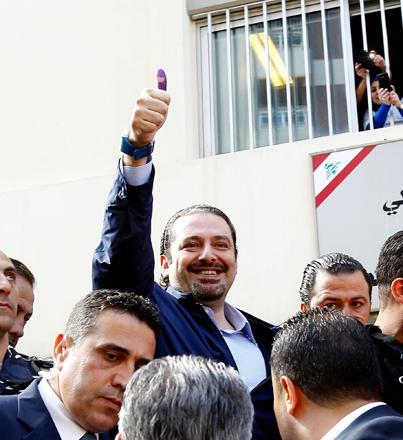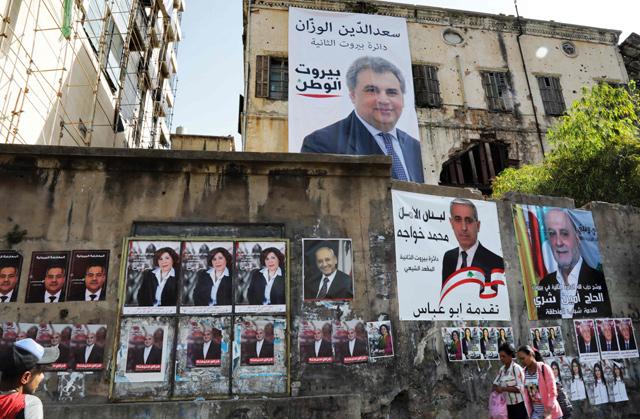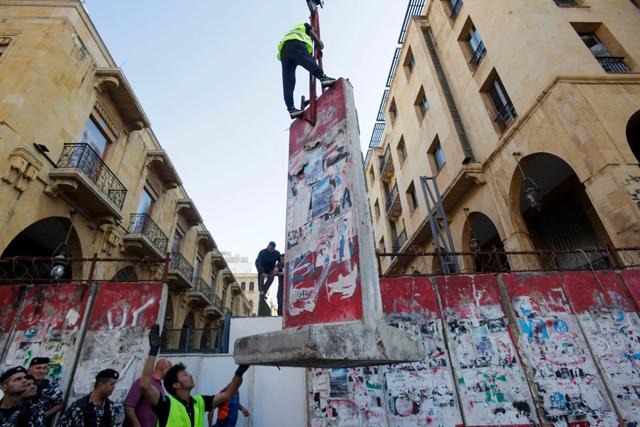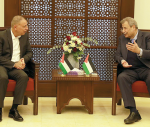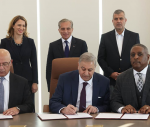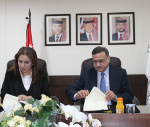You are here
Grassroots campaign tackles entrenched parties in Lebanon poll
By AFP - May 08,2016 - Last updated at May 08,2016
BEIRUT — Lebanese headed to the polls for the first time in six years on Sunday for municipal elections including in Beirut, where a new grassroots campaign is taking on entrenched parties.
It is the first election of any kind in Lebanon since the last municipal polls in 2010, in a country that has not had a president for the past two years nor voted for a parliament since 2009.
Voters trickled to polling stations in Beirut and in two provinces of the Bekaa region in the first stage of a vote to last until May 29 in five other provinces.
In Beirut, an unlikely alliance of citizens is for the first time challenging traditional politicians like former prime minister Saad Hariri, whose Future Movement usually dominates elections in the capital.
Beirut Madinati, or Arabic for "Beirut is my city", emerged after civil society gained momentum in protests last summer over a political crisis that saw trash pile up on streets.
Coming out of a polling station in Beirut, a 43-year-old voter who gave his name only as Elie was enthusiastic.
"Even if just one candidate from Beirut Madinati gets in, it'll be a victory for civil society," said the employee of a money transfer company, who in 2010 had voted for the Hariri-backed list.
'Fed up' with corruption
"We're fed up with this corrupt political class."
The 24-candidate list of independents includes teachers, fishermen and artists such as famed actress and film Director Nadine Labaki.
But 40-year-old Mariam said she had voted for the Hariri list because "it represents the people of Beirut".
Five hours into the voting, however, the turnout in Beirut remained low with only 6 per cent of voters showing up to cast ballots, the authorities said.
In the Bekaa area, which is dominated by Shiite movement Hizbollah, turnout varied between 11 and 15 per cent.
Since the end of the Lebanese civil war in 1990, lists in the municipal polls every six years have traditionally been pulled together by a handful of parties often formed along sectarian lines and led by former warlords.
Beirut Madinati faces the formidable challenge of breaking through that established political class in a bid to win all 24 seats in the Lebanese capital's municipal council.
Only about 470,000 voters are registered in the capital despite almost four times more people living there.
According to the country's electoral law, Lebanese are automatically registered to vote in the birthplace of their ancestors.
Lebanon has been without a president since May 2014, when the mandate of Michel Sleiman expired, because the country's Christians, Sunni and Shiite Muslims and Druze cannot agree on a candidate.
'Uncontested' Hizbollah lists
The country's political scene is deeply divided, with the government split roughly between a bloc led by Hizbollah — backed by Iran and neighbouring Syria — and another headed by Hariri — supported by Saudi Arabia and the United States.
These rivals have joined forces against Beirut Madinati for the municipal polls in Beirut, however.
On Sunday posters of the traditional candidates were plastered on the city's walls, while Beirut Madinati supporters took to social media to convince friends and acquaintances registered in Beirut to get out and vote.
Lebanese suffer from poor infrastructure and public services, as well as water and power shortages.
Beirut Madinati's programme to attract frustrated voters includes plans to improve public transport in the traffic-ridden city, introduce more green spaces, make housing affordable and implement a lasting waste management solution.
Hizbollah is expected to win in the Bekaa region — except in the town of Zahle, where a list of candidates from an influential family backed by Hariri is vying against another supported by traditional Christian parties.
In Beirut and the Bekaa region, another grassroots movement called Citizens in a State, led by former minister and economist Charbel Nahhas, is taking part in the polls.
Polling stations are open for 12 hours and will close at 1600 GMT with first results expected overnight.
Related Articles
BEIRUT — A list backed by mainstream Lebanese parties has won Beirut municipality elections, its leader said early on Monday, seeing off a c
BEIRUT, Lebanon — As its first parliamentary vote in nearly a decade approaches, Lebanon has been swept into campaign fever: posters on ever
BEIRUT — Lebanese law student Charbel Chaaya spent the election campaign distributing flyers in Beirut and trying to convince his parents to


